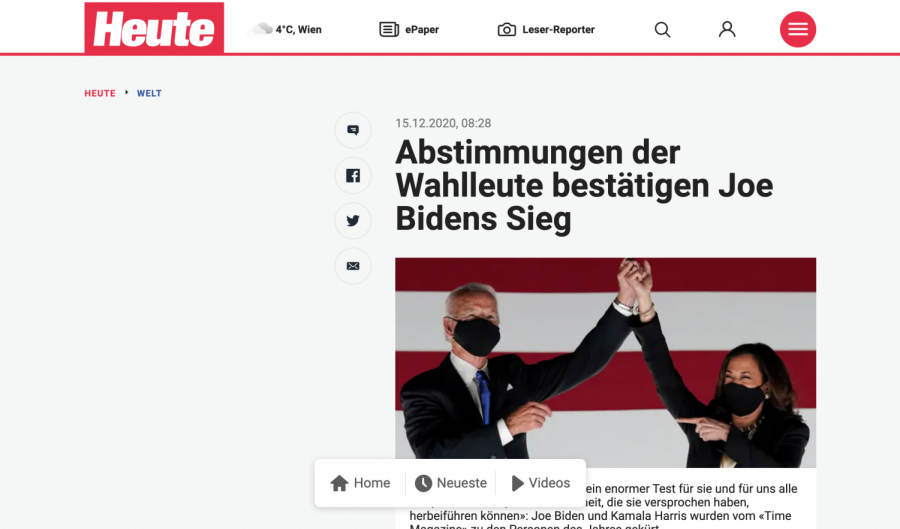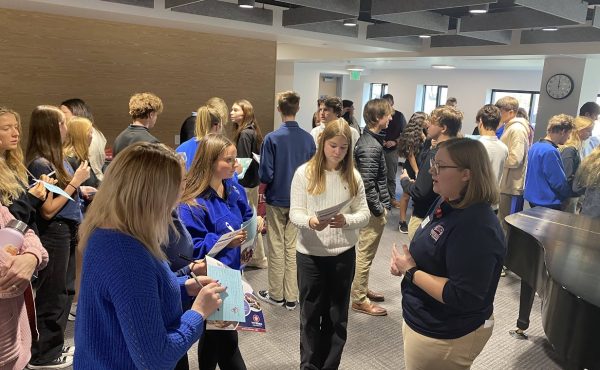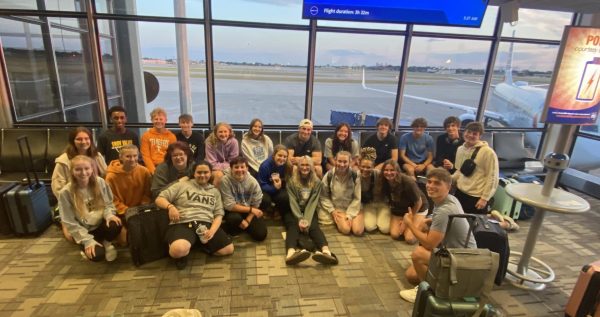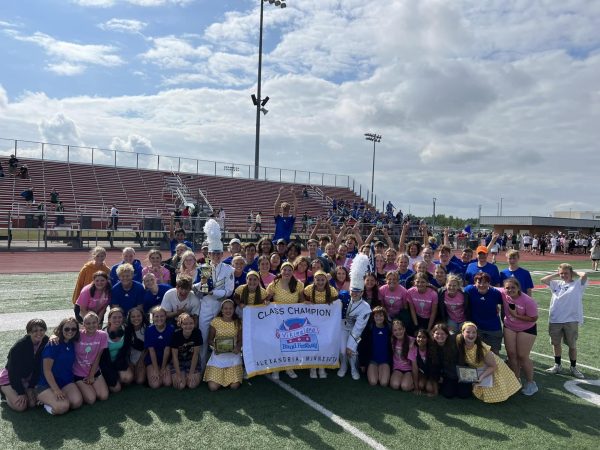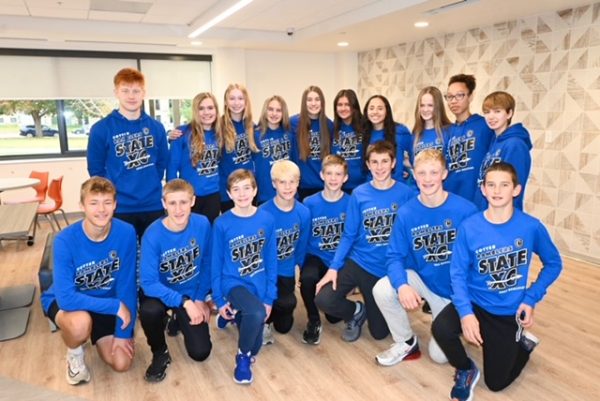The big show: an Austrian perspective on U.S. elections
Joe Biden and Kamala Harris featured in an Austrian news headline
Dateline: Vienna, Austria
Over the past several decades, presidential elections in the US have become more and more popular both with U.S. voters and the global audience.
One of the most popular was the 2016 election year due to the mass media attention and hype that started when a show businessman ran for the presidency. Later on, of course, he became the president.
Even before the 2016 election, many people have been watching the U.S. elections from all over the world, mainly since the US runs the world’s economy, therefore, the business world is paying attention. Many of the global viewers express their views on their idea of a perfect American president that would benefit not only the US, but also establish peaceful relations with other countries.
Currently, I am in Austria, which is considered the “heart of Europe,” located in between Italy, Germany, and Switzerland. Austria is considered one of the best countries to live in due to the good GDP rates and high ranking in the United Nations citizen’s happiness report. The majority of the Austrians between 20 and 40 have relatively strong English speaking skill. One of three United Nations headquarters is located in Vienna, Austria, which is a big deal since the UN wouldn’t choose an unsafe location for its headquarters.

With a rapid increase of global internet usage and more information sources that are now available to the public in almost unlimited quantities, many people in Austria have become interested in US politics, as they have gained access to U.S. media.
Austrians tend to view the Republican party’s “America First” platform as negative and too nationalistic. It made most Austrians hope that the Democratic party would win in the 2020 election.
In the 2016 election a large majority of Austrians supported Hillary Clinton. Many people hoped that she would be the first woman U.S. president. Similar to the U.S., many younger people in Europe and Austria have more liberal points of view than the older generations.
Many people watching elections outside of the States support candidates that appeal to global issues and reach out to other countries. People outside the U.S. support the candidate that is acting in a professional matter and send signals they want to connect on global issues, like protection of the environment. The more the candidate signals global cooperation, the more people outside of the States will respect you.
Many Austrians do not understand that living in the United States might change their political opinions; otherwise, mainly due to economic reasons and financial opportunities. For instance, many people outside of the U.S. don’t understand that there is a difference between States in the amount of taxes people pay and how it greatly affects the development of small businesses in the U.S. A Californian, for example, might consider moving to Texas simply because they could save money by paying fewer taxes. Similarly, many Austrians care about the candidate’s actions and choice of words rather than the inner plan for the U.S. economy and the country itself. On the other hand, they are also shocked to hear about the cost of health insurance and medical procedures in the U.S.
From a global perspective, the U.S. elections more show than substance. The U.S. media presents the elections a TV show such as Super Bowl. Presidential debates are streamed on the global level so that everybody can watch for free through the internet. The spectacle has more to do with personalities and slogans than policies.
This entertainment value helps draw a global audience every four years. It is part of the US tradition and part of the U.S. show business market to stream the elections.
Even from Europe it is easy to feel the pressure build-up in the U.S. due to massive division between the nation and political parties throughout the social media apps such as Instagram, Facebook, and Twitter, that are US-based, which means that they are made in the U.S. and ran by US businesses.
The US elections are largely about show business and, despite the lack of substance, they are essential viewing for the rest of the world, since the U.S. is one of the most powerful countries in the world economically and military wise.
Many ordinary people worldwide watching the US elections are falling under the so-called “Bandwagon effect,” where they watch the elections based on the idea that the majority of the population does the same thing. The rest of the world should focus less on the other countries’ elections unless it impacts their lives directly. The time and energy spent following this cycle may not be worth the effort for those who have never lived in the States.


